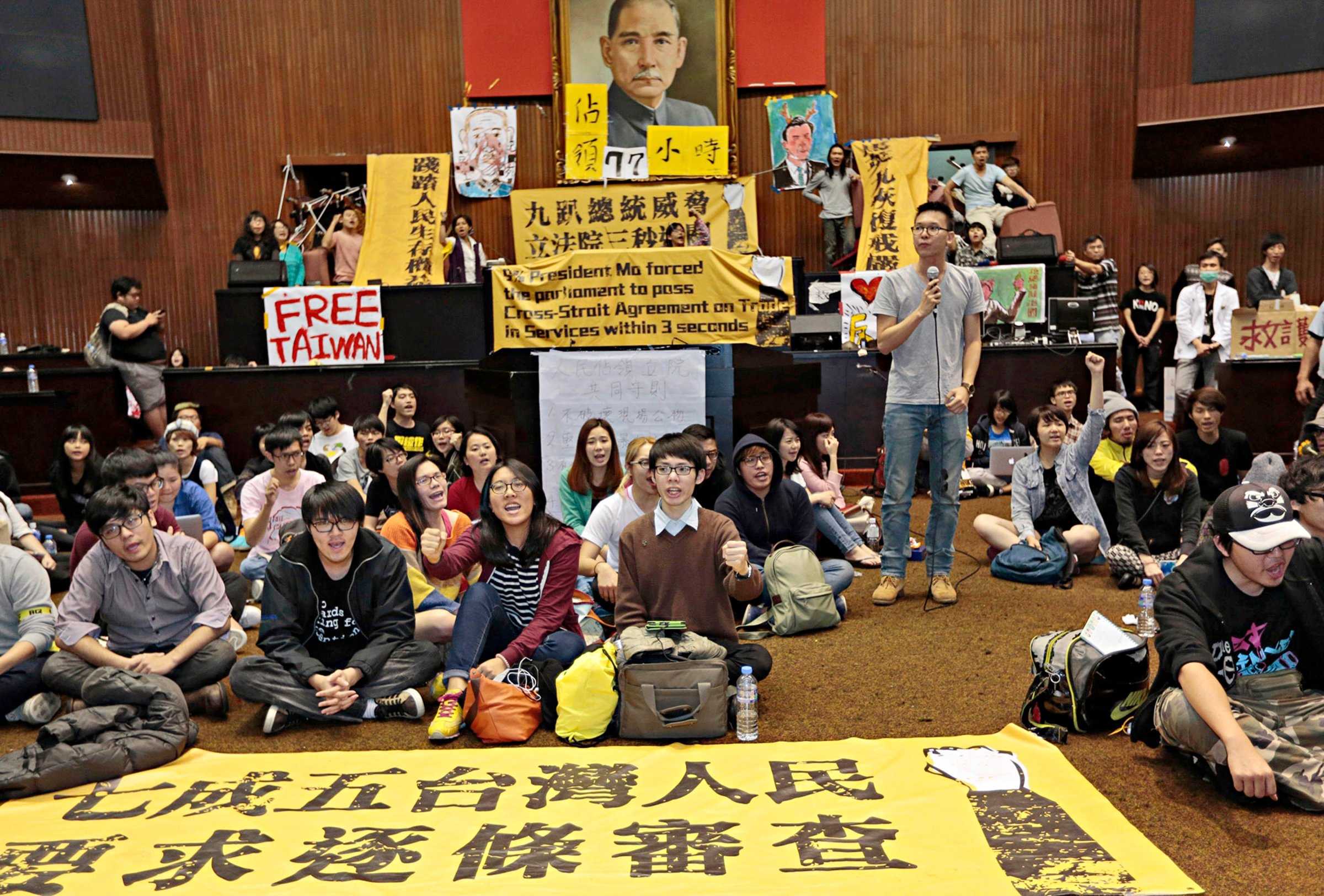
On a past visit to Taiwan’s rugged, windswept east coast, I stayed at a B&B in the seaside town of Hualien. It was run by a middle-aged Taiwanese descended from islanders predating the 1949 flight to Taiwan of the Kuomintang (KMT) army and elite after the communists won the civil war in China. The innkeeper was apoplectic about a new influx of mainlanders: Chinese tourists, whom he found arrogant and politically incorrect. He refused to host any, even though that cost him business. The Chinese, he said, were trouble.
It’s a sentiment shared by ever more of Taiwan’s 23 million people. Once, China’s claim to Taiwan, which it views as a rebel province to be retaken by force if necessary, created a dangerous Asian flash point, second only to the one on the Korean Peninsula. No longer. In recent years, Taipei and Beijing have both ratcheted down tensions—a relief too to the U.S., which is obliged, under Washington’s Taiwan Relations Act, to help in the island’s defense. But now the worry among many in Taiwan is that authoritarian China will overwhelm the island—the freest place in the Chinese-speaking world—without need of war.
They have cause to be anxious. China used to lob missiles toward Taiwan—a tactic that backfired, serving only to antagonize rather than intimidate the islanders. Beijing learned its lesson and, today, it is adopting a hearts-and-minds approach by promoting commercial and cultural ties. Taiwan’s KMT President, Ma Ying-jeou, has gone along—he believes engagement with China is the best way to spark Taiwan’s flat economy, enable it to compete with the rest of Asia and keep the peace with the mainland. Since Ma came to office in 2008, Taiwan and China have signed 21 agreements for direct flights and easier two-way traffic for investors, scholars, students, tourists, even officials. Chinese tourists are now the biggest group of visitors to Taiwan, with the number growing each year.
For many islanders, this is a bridge too far. Recently, local students occupied the legislature for nearly a month to protest the passage of a new cross-strait agreement that would open up service industries on both sides. Though the pact is more favorable to Taiwan than to China, the protesters see it as benefiting just Big Business—and as a Trojan horse through which Beijing will influence, even control, the island’s economy. Already, roughly 40% of Taiwan’s exports are to China. Why seize the island when you can simply buy it? “The frustration and fear,” says prominent Taiwan commentator Antonio Chiang, “is that we are dependent on China.” University of Chicago political scientist John J. Mearsheimer was blunter in a recent article in the National Interest: “A powerful China isn’t just a problem for Taiwan. It is a nightmare.”
Beijing has territorial disputes with many neighbors, but the difference with Taiwan is that China wants all of it. As often with its claims, Beijing says it is righting a historical wrong—in this case Japan’s annexation of Taiwan as war booty after defeating the Qing-dynasty army in the First Sino-Japanese War of 1894–95. (Japan surrendered Taiwan after it lost the Pacific War.) For China, reunification with Taiwan is sacrosanct. The island, however, doesn’t want any part of it. Reliable local surveys show that the vast majority of its citizens, even those with mainland antecedents, see themselves as Taiwanese, not Chinese.
Taiwan is not Hong Kong, which returned to China in 1997 after the colonial British departed. Hong Kong could never have remained under the British, who took it in an unjustifiable conflict. And it cannot survive without China—even most of its fresh food and water comes in daily from across their land border. Taiwan is different: a viable, de facto nation-state. Moreover, Hong Kong is hardly a model of reunification. Many in the territory are chafing under what they believe is China’s interference in politics, business and media despite Beijing’s pledges of autonomy.
No place can afford to disengage with China, given its growing global power. But Beijing cannot hark back to the inequities of the past to frame the future. By doing so, China denies an ever changing world. It also denies what Taiwan is today: a democracy. Neither Beijing nor Taipei can make the call to reunite or not. That right belongs only to Taiwan’s people.
More Must-Reads from TIME
- Cybersecurity Experts Are Sounding the Alarm on DOGE
- Meet the 2025 Women of the Year
- The Harsh Truth About Disability Inclusion
- Why Do More Young Adults Have Cancer?
- Colman Domingo Leads With Radical Love
- How to Get Better at Doing Things Alone
- Michelle Zauner Stares Down the Darkness
Contact us at letters@time.com